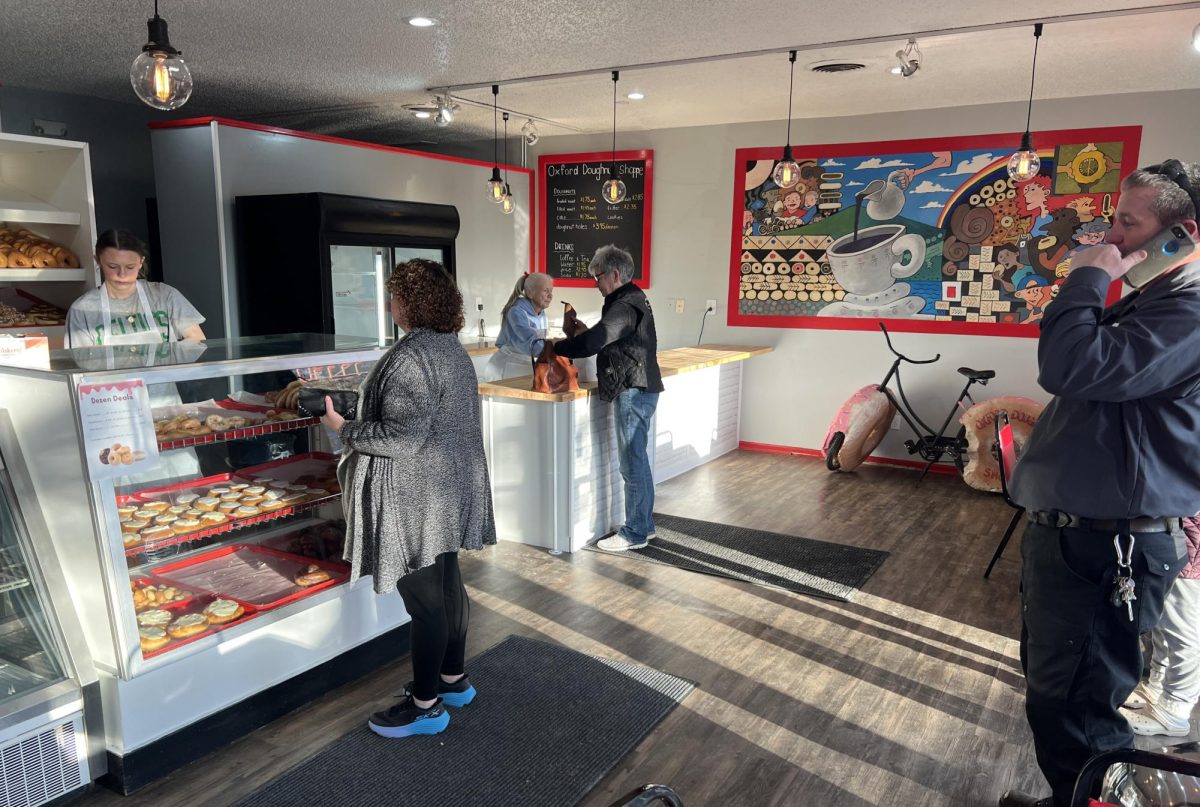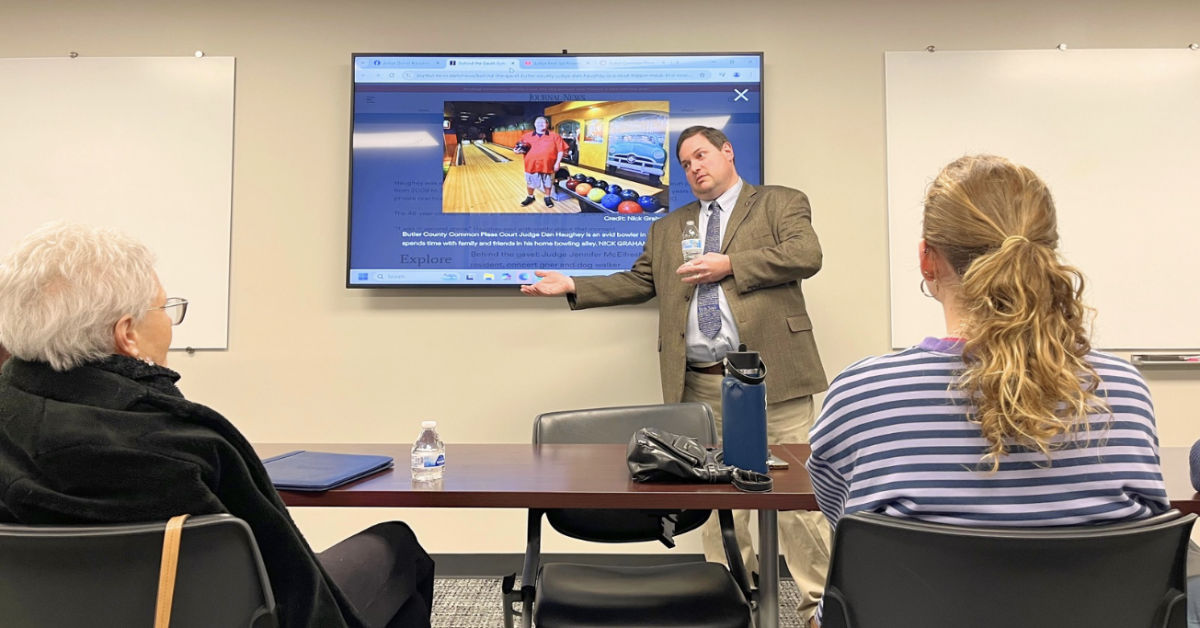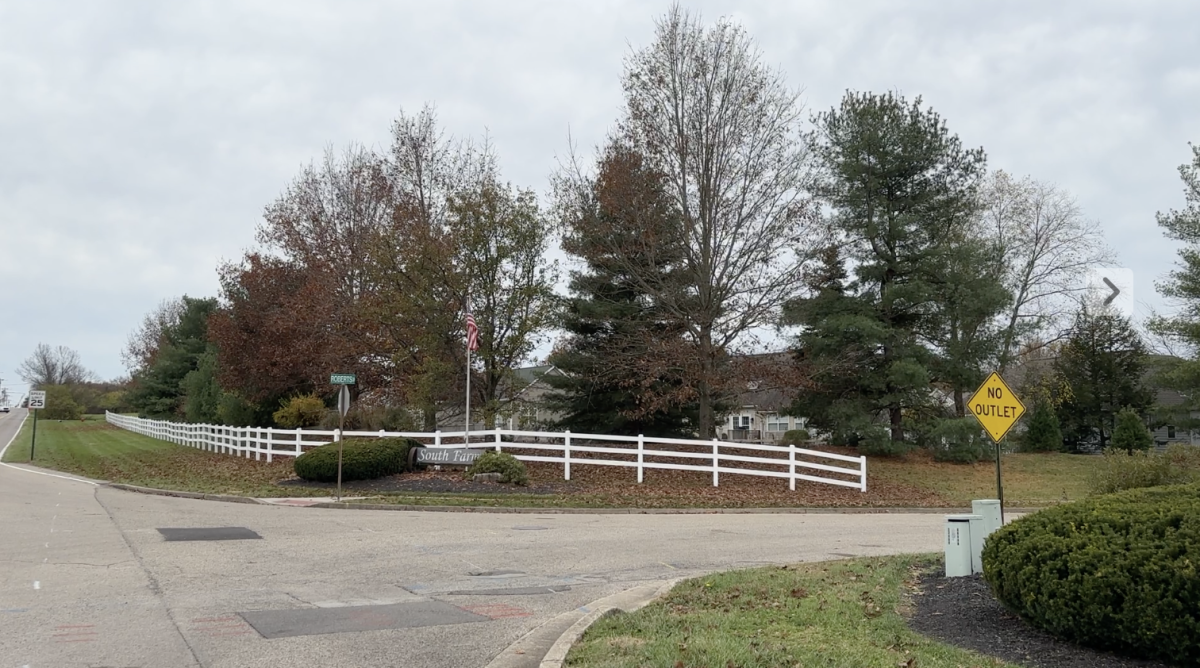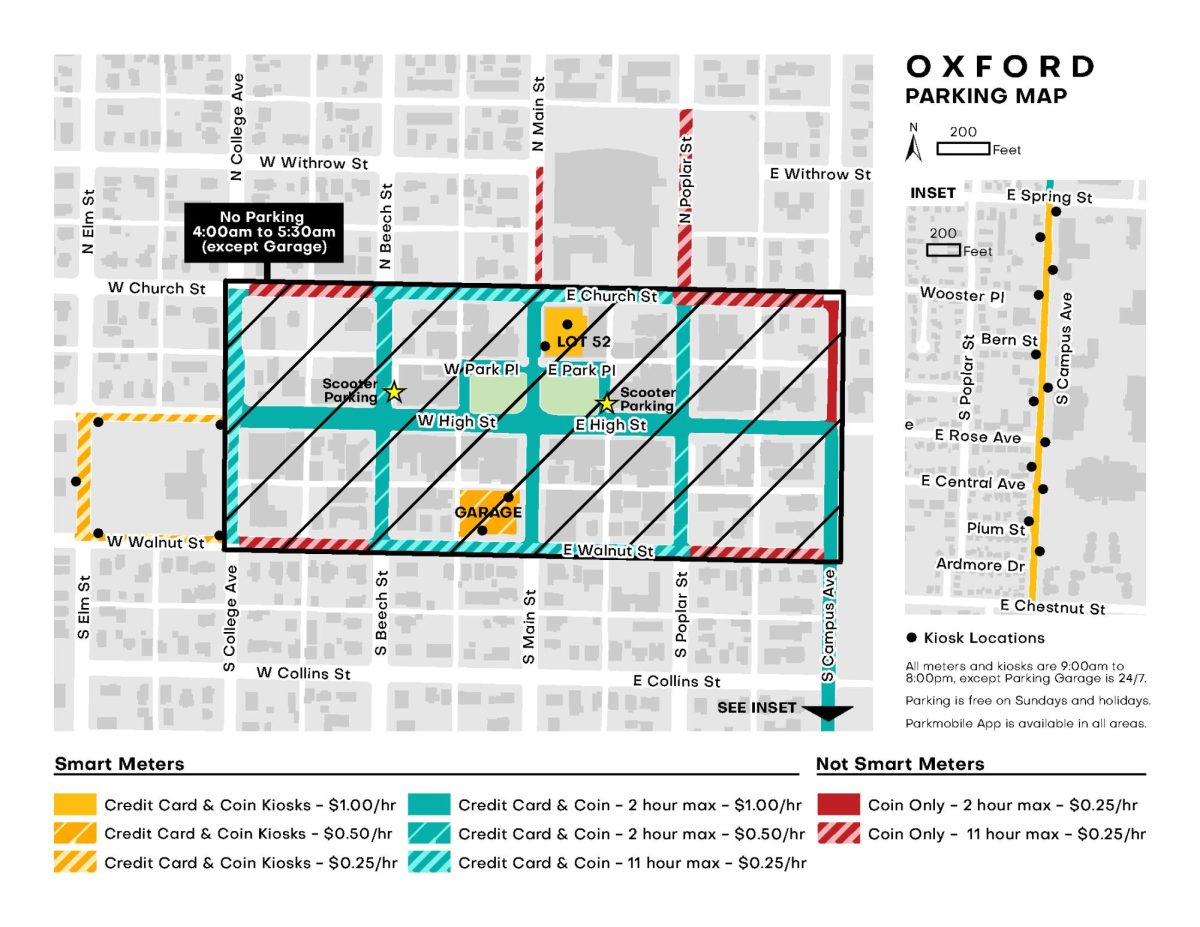Oxford is considering banning the use of polystyrene food and beverage containers in the city for health and environmental reasons.
Councilor Chantel Raghu introduced the idea to City Council Tuesday, Dec. 2. The proposal would involve a two-year step away from the use of such products in the city. The proposal has been referred to the city manager and law department to work out details including how such a ban would be enforced and to polish the language into a legal ordinance.
City Manager Douglas Elliott also said he would seek input from local businesses and the Chamber of Commerce on what the impact and cost of such a ban might be.
Polystyrene or Plastic No. 6, commonly known by the brand name Styrofoam, is a cheaply produced, single-use plastic, commonly used as to-go boxes and drink cups in fast food and carry out restaurants. Due to its nature as a single-use plastic, it is one of the most commonly littered pieces of trash in the country. Oxford is no exception.
“If you want to know where to find it, you can just go to Seven Mile Creek or any of our waterways and oftentimes you’ll see the high water mark traced in polystyrene,” said Carla Blackmar, a member of the Oxford Planning Commission and a local environmental activist. “The plastic breaks down into tiny particles that can be ingested by wildlife, but contain harmful chemicals that injure animals and the environment.”
Raghu described the proposal as a “two-year step away” from the use of Styrofoam in two types of local restaurants. The proposal would first have national restaurant chains located in Oxford halt their use of polystyrene by 2020 and local independent restaurants stop using it by 2021.
Already banned in many cities
Many restaurants, including McDonalds and Starbucks already have moved away from polystyrene to cardboard or other types of materials for their cups and containers, as problems with the plastic have become known. The legislation proposed by Raghu is no different from the many Styrofoam bans existing countrywide today. Communities such as Freeport, Maine to the sprawling New York City have already implemented polystyrene bans. Other cities with such bans include Los Angeles, Portland, Ore. and Takoma Park, Md.
Raghu made it clear Tuesday that she did not want the legislation to hurt Oxford’s businesses, so a provision is included in the proposal allowing businesses to be exempt if they demonstrate significant financial hardship halting the use of Styrofoam.
“It in no way is meant to financially affect anyone, and it’s a two-year process so that people can use up the polystyrene they have in their restaurants,” said Raghu.
Polystyrene is the target of the proposed ordinance because of the impact plastic has on the environment. It is lightweight, allowing it to travel far distances and does not biodegrade, so it can exist in its plastic form for hundreds of years. It is also very brittle, meaning it can easily break into smaller pieces. These fractured pieces of polystyrene pose a threat to millions of seabirds and other marine life. Animals mistakenly eat broken Styrofoam off the roadsides or in the water, spreading carcinogens into the ecosystem’s food chain. When heated, polystyrene can leak harmful compounds into the air and whatever is being stored in it.
Another reason for the push to curb the use of Plastic No. 6 is due to how difficult it is to recycle the material. The varying qualities of Styrofoam used and mixed together in waste make it difficult to produce a substantial recycled product. None of the businesses in town, including Rumpke Recycling, has the equipment to recycle this material, Raghu said.
Many voiced support for some type of ban
After a lengthy discussion and several questions on how such a measure could be implemented, other city council members voiced tentative support for stepping away from the use of Polystyrene.
“I don’t know why anyone would still use the product,” said Councilor David Prytherch.”I would love to see it phased out.”
“It’s nasty stuff, and it’s a carcinogen,” said Councilor Edna Southard.
While other council members supported Raghu’s proposal, several others were reluctant to proceed to voting on the new legislation due to confusion toward some of the language in it. Others wondered why grocery stores such as Kroger and Wal-Mart would not be subject to the proposed ban, as both chains serve food and sell many food products packed in polystyrene.
“It seems like we have a couple of small businesses that are restaurants that are taking the brunt of it and these big chain stores are kind of being exempted from it, so that kind of bothered me a little bit,” said Councilor William Snavely.
Raghu responded: “I would love to do big stuff, but I want achievable small steps and to grow from there.” Raghu explained that tackling large national chain grocery stores in addition to restaurants would add a considerable roadblock to implementing the initial legislation.
Polystyrene was first discovered in 1839 when German apothecary Eduard Simon produced an oily substance from the resin of a Sweetgum tree. After waiting several days, Simon returned to find that the substance thickened into a foamy jelly. Over a century later, German organic chemist Hermann Staudinger found that in the absence of oxygen, i.e. by burning it, this thick jelly would become a soft, lightweight plastic.
It wasn’t long before the discovery was being used in American factories. In 1944, Styrofoam, the brand name commonly associated with Plastic No. 6, was patented. In 1954, Coppers Company in Pittsburgh developed expanded polystyrene or EPS, which would become one of the most popular forms of the single-use plastic. By 1960, Dart Container Corporation, at one time the leading manufacturer in single-use cups, shipped its first order. It didn’t take much longer for the polymer to become the standard for disposable food ware in the United States.
An environmental hazard that does not break down
In 2017, the Environmental Protection Agency reported over 35 million tons, or 13% of all the trash in landfills, was plastic. The amount of plastics dumped in landfills exceeded the amount of both glass and metals by a significant margin.
After discussion among city council concluded Tuesday night, Mayor Mike Smith opened the floor for public comment. Several concerned citizens came forward to voice their support of Raghu’s proposal.
One of the first public responses came from a mother, Elena Alberon and her young son Noel Alberon.
Mrs. Alberon supported the proposal and said, “We can draw a line in the sand and signal what we want to see our city to tolerate and then through that we can encourage other sustainable practices.”
Her son, Noel, a student at Kramer Elementary School, came prepared with data accumulated from observing multiple days of school lunches served at Kramer. Through his research, Noel found Kramer Elementary alone produces over 300,000 pieces of plastic trash in an average school year. Alberon and his mother implored city council to partner with the Talawanda School Board to help lower local schools’ consumption of single-use plastics.
Taylor Meredith, who works for Enjoy Oxford, also voiced her support for the proposed legislation.
“This makes Oxford look good and people are going to want to invest in this town when they see we are investing in ourselves and the people who live here,” Meredith said.
Blackmar also spoke passionately in favor of the ordinance during the public comment period.
“McDonald’s didn’t move away from polystyrene just for the heck of it,” she said “They did it because lots of little places, like Oxford, put their foot down.”
McDonald’s pledged to halt its use of Styrofoam by the end of 2018. Sports bar chain Buffalo Wild Wings now uses cardboard and paper for their to-go boxes. Local Italian chain LaRosa’s also no longer uses polystyrene.
Adopting this proposal would be another green initiative for the city in an already busy 2019. Earlier this year, Oxford joined the Global Covenant of Mayors for Climate and Energy, an international coalition of city leaders devoted to minimizing emissions and greenhouse gases. In addition, the city implemented a residential compost drop-off program.
After the conclusion of the public comments, Mayor Mike Smith recommended sending the matter to the administration and law departments for review, but Smith seemed to favor the general idea of the proposed ban.
“I think this is a good proposal, I think this is a good first step,” Smith said.
The proposal is expected to come up for further discussion at the council’s next meeting Dec. 17.





